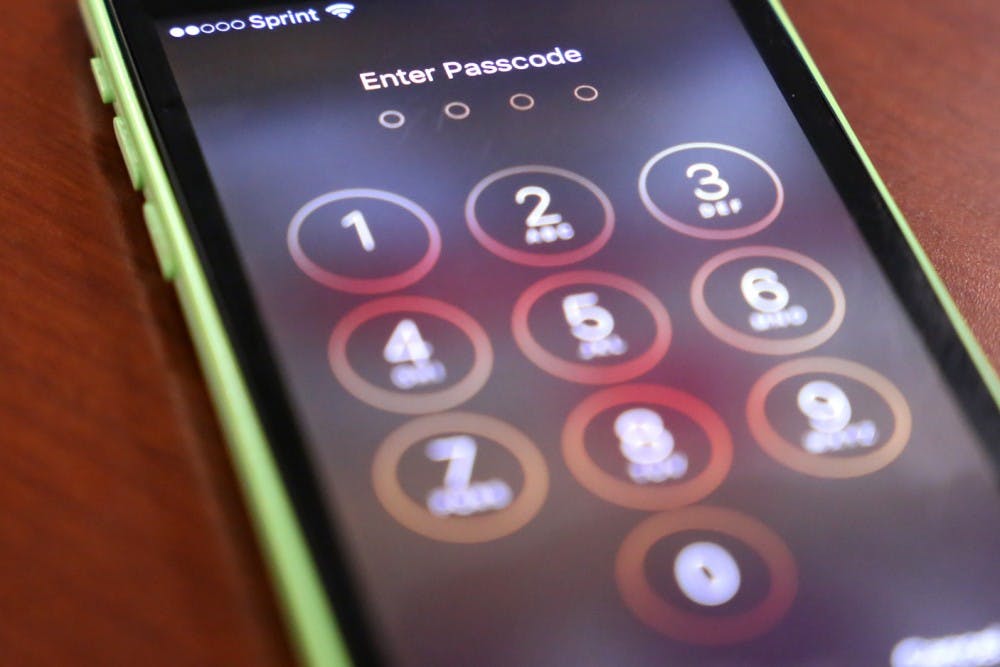At the moment, one of the greatest fears in the U.S. terrorism.
Yes, with family in the military, I know that it is certainly worth fearing. But even more so, I fear that one of the U.S.'s greatest mistakes will be sacrificing the rights of the world's freest citizens to address issues created by people hoping to destroy our great country.
The Federal Bureau of Investigation has asked Apple Inc. to unlock the iPhone of San Bernardino shooter Syed Rizwan Farwook. Apple responded with opposition to the court order, and rightfully so. They advised the FBI to connect to one of the phone's familiar wifi sources and (hopefully) allow the phone to back itself up to the iCloud.
However, in reaction to Apple's opposition to the total unlock, a member of the San Bernardino government supposedly changed the terrorist's iCloud password in attempt to access the requested information under pressure from the FBI.
Apple is now at a stand still, insisting that the easiest and safest way to hand over up to six weeks of new information to the investigation has now been compromised. The changed iCloud password disallows the iPhone and the iCloud software to recognize one another or connect to each other, which eliminates the opportunity for any of the information surrounding the shooting to become accessible through the cloud.
Now the FBI continues to push for its initial request of a customized iOS operating system that will allow them to bypass general security measures created for Apple users to protect their personal information. In order to unlock Farwook's phone, Apple would have to create a "master key," which would put every single consumer at risk.
Aside from the potential tarnishing of Apple’s reputation as a dependable technological company, Apple Chief Executive Tim Cook is correct in assuming this would create a “chilling” precedent for data requests and retrievals.
San Bernardino (the technical owners of Farwook’s iPhone) handing the phone over to the FBI is one thing, because it only impacts the privacy of the criminal at hand. Although he is dead, he would have forfeited his rights to privacy purely by committing an act of terror that resulted in several deaths — and truthfully, if I had a say, I would move to revoke all constitutional rights of terrorists in the U.S. If you dislike this country enough to terrorize those within it, you do not deserve the rights citizens of that country are lucky enough to have.
However, the “master key” presents a serious conflict between the FBI and the Fourth Amendment. The amendment reads: “The right of the people to be secure in their persons, houses, papers, and effects, against unreasonable searches and seizures, shall not be violated, and no warrants shall issue, but upon probable cause, supported by oath or affirmation, and particularly describing the place to be searched, and the persons or things to be seized.”
I do understand that in the case of the San Bernardino attack, the search and seizure of Farwook’s iPhone is in fact “upon probable cause.” Unfortunately, the allowance of this information request will likely not be the only one. Not to mention, Apple is probably correct in assuming that as soon as this “master key” is developed, it is only a matter of time before hackers gain access to all of the information intended only for investigative purposes. Additionally, despite the FBI's reasons for using the "master key" in this particular case, they could take advantage of the software in the future. The technological power could lead to the violation of law-abiding citizen's rights.
Generally speaking, Apple did try to cooperate to the best of their ability without compromising the safety of their users. The FBI opted to disregard the company’s guidance, and ruined their opportunity to receive Apple’s assistance in this case.
Apple should not be forced to damage their own image in an effort to assist the FBI.
Related Links:
Battle over NSA intrusion comes to Arizona
Understand why terrorism has no religion
Reach the columnist at Kendra.Penningroth@asu.edu or follow @KPenningroth on Twitter.
Like The State Press on Facebook and follow @statepress on Twitter.
Editor’s note: The opinions presented in this column are the author’s and do not imply any endorsement from The State Press or its editors.
Want to join the conversation? Send an email to opiniondesk.statepress@gmail.com. Keep letters under 300 words and be sure to include your university affiliation. Anonymity will not be granted.




